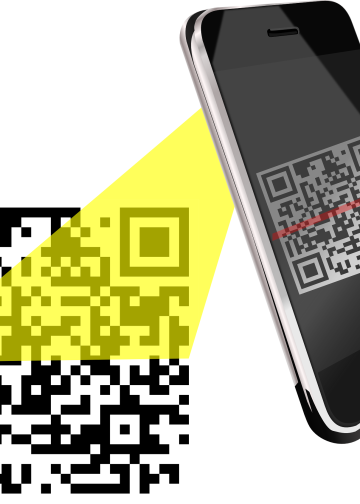With so much going on in the world, the number of Americans facing mental health problems is rising. According to a recent survey conducted post the pandemic, 42% of U.S. adults reported having mental health-related symptoms.
This, in turn, is leading to increased spending on mental health treatments and services, which was $225.1 billion in 2021.
Patients pay a huge amount for mental health treatment to get the best care and experiences. But how can therapists offer this care to the patients? With the help of mental health practice software. Mental health practice software can simplify the care process, which benefits the therapist and the patients.
Choosing the right practice management software is crucial to success in today's competitive healthcare market. If your practice uses a manual, paper-based system or an out-of-date computer program, it's time to upgrade. Fortunately, many options can help you manage appointment scheduling and billing and provide telehealth capabilities and third-party integration.
The following features should be part of any mental health practice management software:
Appointment Scheduling
With practice management software, you should be able to schedule appointments for your patients with ease. The software should allow you to schedule multiple and create future appointments simultaneously.
Your practice management software should also have the ability to handle multiple locations and appointment types. For example, if you have an office in Seattle and one in Los Angeles, then it would make sense for your appointment scheduling feature to be able to handle both of these locations.
Automated appointment scheduling through the software will ensure you never give appointments at the same time to two different people. It will also ensure you attend all appointments, as you will get a notification alert before every session.
Document Management
Document management is a vital part of any healthcare practice. It ensures that all the documents in your system can be found, searched, and accessed quickly and easily. In fact, document management is one of the key drivers behind the growing demand for mental health software.
A mental health practice software should allow you to:
- Import documents from other software, such as EHRs or billing systems. This ensures that all relevant information is in one place.
- Import documents from the cloud (for example, Google Drive). This allows you to view and edit files on any device without worrying about whether they're stored locally.
The ability to search for documents by keywords or dates also makes it easier for users to find what they need when it matters most, like when a patient asks for their file. If patients have access to copies of their records, they are less likely to ask questions while waiting at reception. This helps keep them happy while getting out of there faster than ever.
Billing and Insurance
A mental health practice management software should make billing and insurance simple. Most people have health insurance. According to the CDC website, only 4.1% of Americans aged below 18 and 13.5% between 18 and 65 are uninsured. Hence, it is evident that most of your patients will use their insurance to cover the expenses for treatment.
It's important to be able to accept insurance and not have to worry about manual entry, especially when you are trying to keep up with a busy schedule. You also want your software to be able to bill for telehealth sessions, as well as create custom insurance codes to accurately report what services were provided and make sure that you are getting paid accordingly.
You need a tool to handle different appointments, like phone calls or video chats. Still, most importantly, it must support the types of services your practice provides so that everything is recorded correctly when it comes time for payment.
Telehealth Capabilities
The more your patients can access care from you, the better. This is particularly important for those who live in remote areas or have disabilities that make it difficult to visit your office. It's also vital for patients who prefer video consultations over in-person visits. These people have a right to be seen by a mental health professional, and you must give them this option when possible.
A telehealth feature with your practice management software will allow you to make appointments and chat with patients online via phone or webcam, all while keeping track of their medical history and billing information. The ability to provide these services remotely saves time and money while helping ensure that no one has trouble finding help when they need it most.
If you are worried about the impact on treatment, don't be. Both teletherapies can be as effective as face-to-face consultations. A study conducted over 931 patients and published on the NCBI website found no significant difference in the quality of care.
Third-Party Integration
One of the most powerful features of mental health practice management software is its ability to integrate with other software. This allows you to seamlessly pull data from one app and use it in another, streamlining your system. Not only does this make it easier for members of your team to do their jobs, but it also makes it easier for patients to access their information and schedule appointments online.
When buying mental health practice management system, you should look for integration with third-party providers like scheduling systems or medical records platforms so that your team can easily track all patient information across multiple platforms.
Compliance
Data security is a considerable concern in the healthcare industry. According to data from HIPAA Journal, a total of 4,419 healthcare data breaches involving more than 500 reports have been recorded.
Compliance is a crucial part of running a successful mental health practice. You need to be confident that the software you're using will protect your patient's privacy and keep them safe from breaches, but also that it can help you stay in line with any state laws or regulations. When selecting a software provider, you must ask the right questions, like what they do to ensure compliance with HIPAA and HITECH regulations.
Some companies may offer services that claim to be compliant, but their promises can be misleading and dangerous at worst. If you're worried about ensuring your system is compliant, consider asking potential vendors how they meet security requirements. Before you select a vendor, you need to find out if they have HIPAA audit control policies in place.
Conclusion
Mental health practice software has many features. Due to these features, the demand for mental health software is expected to rise. Market analysis shows that the mental health software market is estimated to reach USD 2.96 billion by 2027.
We hope this article has given you a better understanding of what to look for in mental health practice management software. There are many different types of software on the market, but choosing one that fits your needs and budget is important.
























